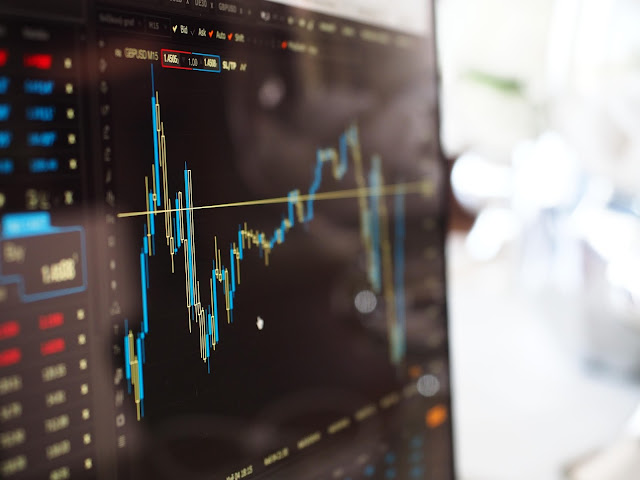The argument for re-adjusting accepted wisdom about passive investing ..... from a passive investing heavyweight.
ref :- "Index Funds are not to blame for market volatility" , The Financial Times, Opinion
The first thing to say about this contribution in the FT is that it comes courtesy of Gregory Davis, CIO of Vanguard. For those not in the know, Vanguard blazed a trail for so-called passive investing way back in the dim-and-distant past by being the first to offer an index-tracking fund, and remain market leaders in the field (second only to Blackrock ?). His defence of the role played by index-tracking funds (or rather, the lack of it) in this month's equity market turmoil is therefore hardly a shock. That doesn't make his case any less valid of course .... it just means that when we read Mr Davis' very cogent arguments, we shouldn't be surprised that someone in his position should think this way. This is an "Opinion" piece, after all.
Anyway ....
As of the close of business last night, despite a slightly better (though volatile) day the S&P 500 Index was registering a fall of over 8% in the month of October. It is estimated that the value of global equities has fallen by about $8 trillion in that time. Volatility is up, investors are nervous and many see further declines to come. We are pretty familiar with most of the reasons that commentators are suggesting are behind the decline : rising interest rates, escalating trade war concerns, surging US deficits, Italy, Brexit ..... and so on. But another factor, some say, is the growth of index-tracking funds.
The generally (though obviously not universally) accepted wisdom about index-trackers is that they perform fantastically in a long and trending bull market, such as we have seen. The ultra-low fees and transaction costs of their traditional buy-and-hold strategies contrast starkly with the hands-on methods of active (and expensive) portfolio managers. Perhaps even more to the point, active management has fared pretty poorly in terms of performance in comparison to tracker funds that simply follow a soaring index.
The flipside to all that is that many perceive that when things get rough, active management comes into its own ..... and if things get so bad that it forces investors to exit the market, index trackers all tend to do so at roughly the same time, thus hugely exaggerating downside moves. But more of that in a moment .....
Mr Davis argues that preconceptions about Index funds and how they contribute to large downside moves need to be amended. He offers five reasons why blame for market crashes, or even corrections, should not be laid at the door of that side of the investment industry :
*** Spikes in volatility and bear markets have been around a lot longer than index funds. The greatest crash of all, in 1929, occurred four and a half decades before the first index fund was created ..... as it happens, by John C. Bogle of Vanguard. Mr Davis suggests that the "underlying causes of major market downturns usually lie in and combination of macroeconomic imbalances and speculative trading".
*** There is little evidence of any correlation between the growth of index funds and market downturns. Look at the two recent examples of major bear markets ..... the bursting of the tech bubble (2000 - 2002), and the financial crisis (2008 - 2009). Through that whole period the percentage of fund assets in index-trackers grew steadily both whilst the markets grew and then crashed, suggesting no connection between the two.
*** That should not come as a great surprise, as the third reason is the small share of assets held in index funds. They represent about 10% of global equity and bond market capitalisation, and considerably less of trading volumes --- less than 5% in US equities, by far the largest asset class of index-trackers' holdings.
*** Going back to the idea that index funds all head to the exits at the same time, the experiences of 2000 - 2002 and 2008 - 2009 argue against it. Mr Davis tells us that on balance investors bought, rather than sold, index funds. The cash inflows suggested that they had come to be viewed as a (relatively) safe harbour in times of strife on the back of the very properties that index fund managers use to market them : low cost and wide diversification.
*** Exchange Traded Funds, or ETFs, are the vehicle many use to follow indexing strategies and the growth in this sector has been spectacular over the last twenty years. The accusation is that ETFs are a particularly speculative tool and often the initial cause of moves across a broader range of instruments. But, says Mr Davis, ETFs share of the overall market is small .... about 13% of global investment assets. In addition, because of the way ETFs work , sales and purchases of the ETF are often not replicated by sales and purchases of the underlying instrument, whether that's a share or anything else. Vanguard estimates that less than 10% of trading volume in ETF's translates into transactions in the underlying security, and so they shouldn't be blamed for escalating volatility.
It's a well-argued case, even if to us at least the piece about ETFs is a little less convincing. It's not really our field, but 13% of global investment assets does NOT seem like a small number to us but a rather significant one. And even if transactions in the ETF market are not replicated pro-rata with similar trades in the underlying market, it's hard to believe that at the very least sentiment would be affected. Nevertheless, this defence of index funds is more than just a promotion of their merits ..... although perhaps inevitably, by the end it does sound a bit like one.



No comments